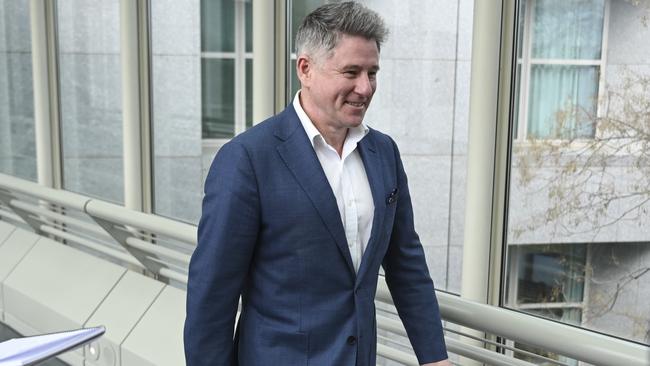
Mike Sneesby’s sudden exit without a smooth succession plan in place once again puts Nine in a strategically vulnerable position. The chief executive’s resignation comes in the face of one of the toughest advertising markets since the pandemic and Nine’s shares sagging at seven-year lows, but it was his slow response to cultural problems that caught up with him in the end.
In fact, the events inside Nine’s North Sydney headquarters of recent months have been dripping with so much drama, the network’s TV bosses could do worse than commission their own miniseries.
The exit of the still new chief has all the hallmarks of one of Nine’s semi-regular management coups.
The rapid rise of chief financial officer and strategy boss, Matt Stanton, a one-time Woolworths executive and Bauer Media boss who Sneesby poached two years ago, is the one to watch in this storyline.
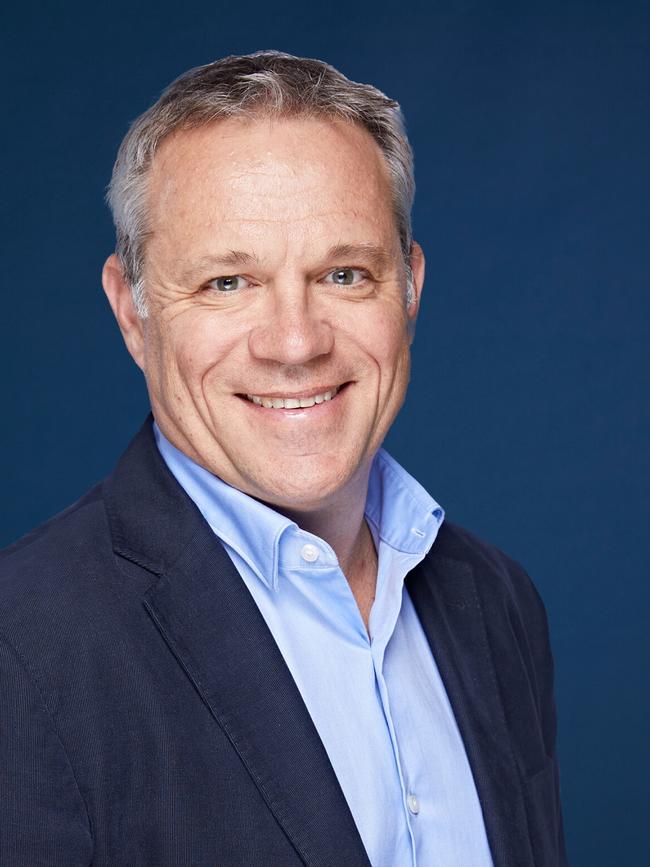
Stanton scored early wins through his involvement to buy the Olympic rights, then more recently for driving 200 job cuts in response to the loss of revenue from social media major Meta. Stanton will be auditioned for the top role after being named as acting chief executive, meaning the job is his to lose. Even as an acting chief expect Stanton to move quickly to push through broader cultural change.
Still, the timing of Sneesby’s exit caught many by surprise, including his own staff, given it follows two weeks of meetings with investors. It also comes after the delivery of a solid $135m full-year profit struck on the back of a tough market.
In addition, the is a period where the chief executive should be capitalising and wringing everything out of Nine’s post-Olympics buzz with advertisers.
Sneesby will officially be gone by the end of this month, but the chief executive had effectively left the building when he jetted off to Paris to join the Olympic torch relay.
Just three years in as CEO, Sneesby had lost his sponsor when long-time chair Peter Costello fell on his sword at the end of June. Costello’s shove of The Australian’s reporter, Liam Mendes, to the ground at Canberra Airport only added to the suggestion of deeper cultural problems inside Nine that needed change at the very top.
From the moment of Costello’s exit and the messy journalist strike that followed in July, Sneesby had started to lose support of the board and new chair Catherine West.
This includes Nine’s own kingmaker, the 95-year-old billionaire Bruce Gordon, who has slowing been tightening his grip this year and now has an effective 25 per cent stake in the media company.
Make no mistake, West, the tough former Sky UK legal boss who took charge from Costello in June, is now calling the shots at Nine.
Where Costello had been a distant chair, West has shown she is prepared to be more closely involved, making life tougher for Sneesby at every move.
While the culture was the issue that got him, in truth Sneesby had been swamped by battles on too many fronts. Coming in at the top is the long-delayed independent review into claims that management at the highest level of Nine covered up allegations of sexual harassment and bullying within the flagship television broadcast unit.
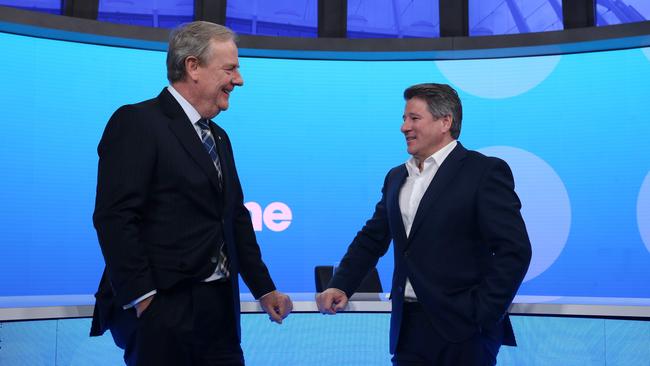
Essentially, the spark for the review followed the payout and clumsy cover-up around the dismissal of former news boss Darren Wick, which has since dogged Sneesby and put the then Costello-led board under the spotlight.
However, the report has been a long time coming. The results of the review that were initially slated for July now are scheduled to be released at the end of October. And while there’s no suggestion the CEO was directly involved in the wrongdoing inside the TV business, it is expected to be ugly reading.
By choosing this as his moment to go, Sneesby has offered an early circuit breaker. It’s likely there could be more management upheaval when the report eventually comes out.
The cultural problems have only exacerbated poor staff engagement right across the company, that includes publications The Sydney Morning Herald and The Financial Review.
The images of Sneesby running the Olympic torch in Paris while a journalist strike was under way back at home only added to perceptions the CEO was losing touch.
Then quickly caving in to some high wage demands got investors offside, given it only added to the notion Sneesby wasn’t going hard enough on costs.
In a memo to staff, Sneesby said “this year has been one of the most challenging in my career – one where our resilience has been tested”.
“In recent months I have reflected greatly on my plans for the future and, in consultation with my family and those close to me, I made a personal decision to consider new opportunities in 2025 after seeing through the important work we are doing around our workplace culture and the outcomes of the culture review,” he wrote.
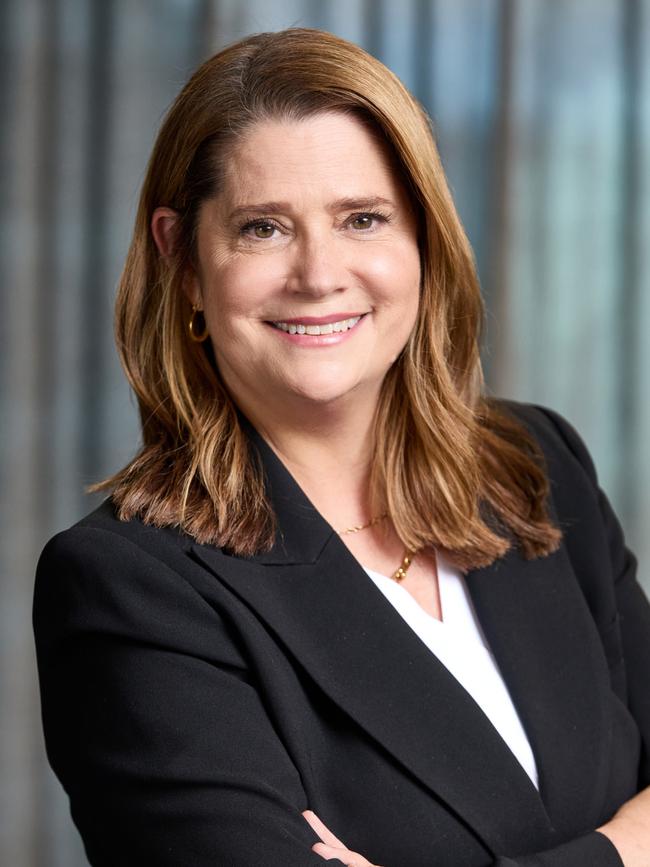
This week, staff were told the internal review was taking time because of the volume of feedback about the company’s workplace culture.
Last month, Sneesby told this column Nine had been doing extensive work right across the company – not just through television – to overhaul culture. The aim was to transform Nine into a values-driven organisation”.
“There’s clearly an opportunity for us take a leadership position around how the media industry as a whole thinks about its people and its organisational culture,” he told The Australian in an interview.
TV drama
Nine’s CEO upheaval adds to change at the top of the nation’s two big free-to-air commercial TV players.
Over at Seven, former chief financial officer Jeff Howard was moved into the chief executive role earlier this year with a mandate to deliver massive cost savings. He is pushing ahead with this and Seven’s TV business is feeling the heat.
Still, Sneesby’s exit leaves Nine’s big growth hope of the Stan streaming business in a strategic vacuum.
Sneesby’s appointment in early 2021 came after he won over the board for his work in building up Stan into a high-growth business. Here Sneesby promised digital transformation of the old-world television and publishing.
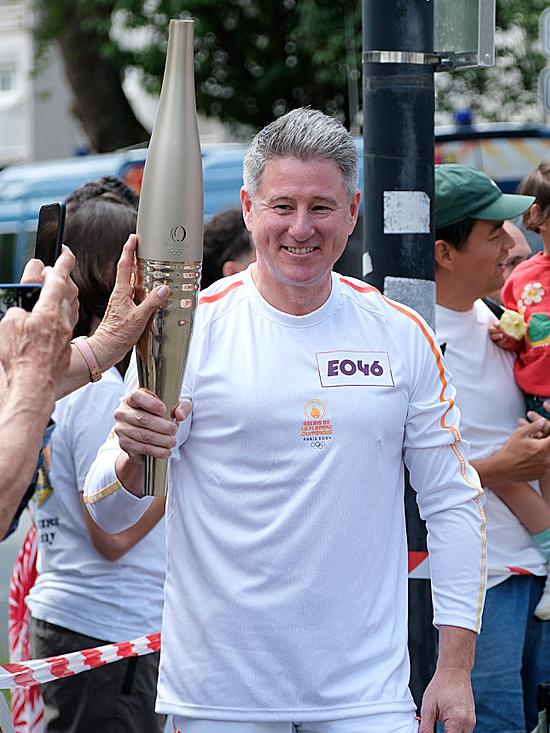
He had taken charge from former boss Hugh Marks, the architect of the Fairfax Media buyout that gave Nine exposure to publishing, radio and the Domain property-listings business – and delivered long-term sports rights deals.
However, Marks resigned at the end of 2020 when it emerged he had been in a consensual relationship with a senior commercial executive.
In recent years Nine has pumped millions of dollars into growing streaming and, while subscriber growth has been good – currently running 2.3 million – revenue is starting to flatline while spending is still high. This includes costs linked to launching the new Stan sports channel.
The streaming market is rapidly evolving with more players circling Australia and the big guns of global streaming – Disney, Netflix and Amazon – now actively manage their operations for profit. However, Nine still manages streaming for growth.
All this means Nine’s new boss has plenty of work ahead.
Tackling the cultural issues will be the immediate priority; then comes the challenge of right-sizing Nine’s bloated cost base across TV, publishing, streaming and radio to reflect the new realities of Australia’s fragmented ad market and slowing consumer spend.
However the toughest job of all for the next boss of Nine will be staying alive long enough to deliver the strategic fixes needed.
johnstone@theaustralian.com.au





Nine has now lost two chief executives and one chairman in a little over three years, bringing new life to the modern management phrase “culture eats strategy for breakfast”.